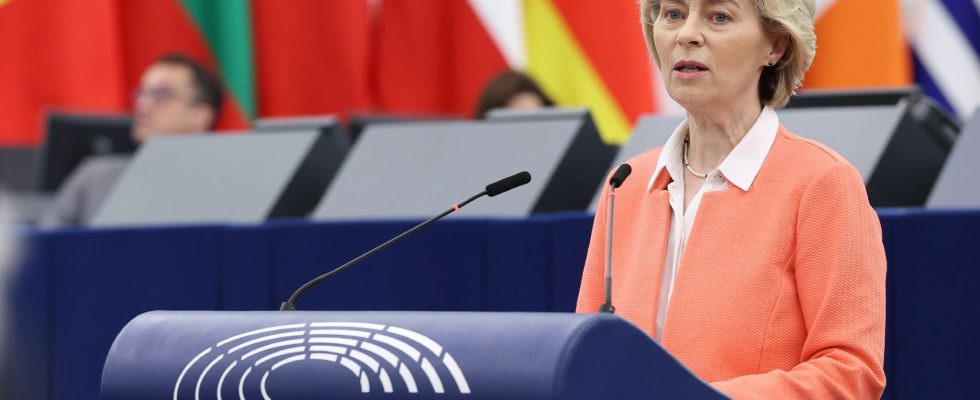Dissemination of “deepfakes”, sale of fake medicines, exploitation of sensitive personal data for advertising targeting… Brussels continued, on Thursday March 14, a vast turn of the screw against large online platforms, targeting in particular the Chinese TikTok and AliExpress.
The European Commission has announced the opening of a “formal investigation” against the online commerce site AliExpress, a subsidiary of the Chinese giant Alibaba. He is suspected of not having respected his obligations in the fight against the sale of dangerous products – such as fake medicines.
This is the third investigation opened under the new Digital Services Regulation (DSA) which has come into force since the end of August to better protect consumers against the illegal practices of internet giants.
The first two investigations, opened in December and February, respectively targeted X (formerly Twitter) suspected of not sufficiently combating disinformation, and TikTok, owned by Chinese ByteDance, for alleged breaches of its obligations to protect minors. “The DSA is running at full speed and our teams responsible for enforcing it across Europe are fully mobilized,” said the European Digital Commissioner, Thierry Breton.
The European Commission also demanded explanations on Thursday from eight major online services, including TikTok, Facebook, Google, YouTube and X, on how they manage the risks linked to the distribution of manipulated content (“deepfakes”).
Concern for the elections
Three months before the European elections, Brussels is particularly concerned about the impact on the electoral campaign of these sounds, photos and videos rigged using generative artificial intelligence. Russia in particular is regularly accused of attempts to manipulate opinion in Western countries through the promotion of falsified information on social networks.
The Commission also requested explanations on Thursday from the professional social network LinkedIn, from the American group Microsoft. It is suspected of exploiting certain sensitive personal data of its users (sexual orientation, political opinions, etc.) for advertising targeting purposes.
The DSA imposes new obligations on online platforms in their user profiling practices, and transparency in the parameters used for targeted advertisements.
This request for information, like that concerning “deepfakes”, is not an indictment at this stage. They constitute the first step in a procedure which could lead to the opening of a formal investigation, then to heavy fines in the event of proven infringements.
22 very large internet players placed under surveillance
The regulation on digital services has already applied since the end of August to the most powerful online platforms such as X, TikTok as well as the main services of Meta (Facebook, Instagram), Apple, Google, Microsoft or Amazon.
In total, 22 very large internet players, including three pornographic sites, were placed under the direct surveillance of the European Commission, which recruited more than a hundred experts in Brussels to assume its new role as policeman of the digital. Violators face fines of up to 6% of their global annual turnover, or even a ban on operating in Europe in the event of serious and repeated violations.
As part of the formal investigations opened against X, TikTok and AliExpress, the Commission is now working to collect evidence, for example by sending requests for additional information, conducting interviews or inspections. No time limit is set for this type of investigation. “The opening of a formal infringement procedure does not prejudge its outcome,” the Commission emphasizes.
